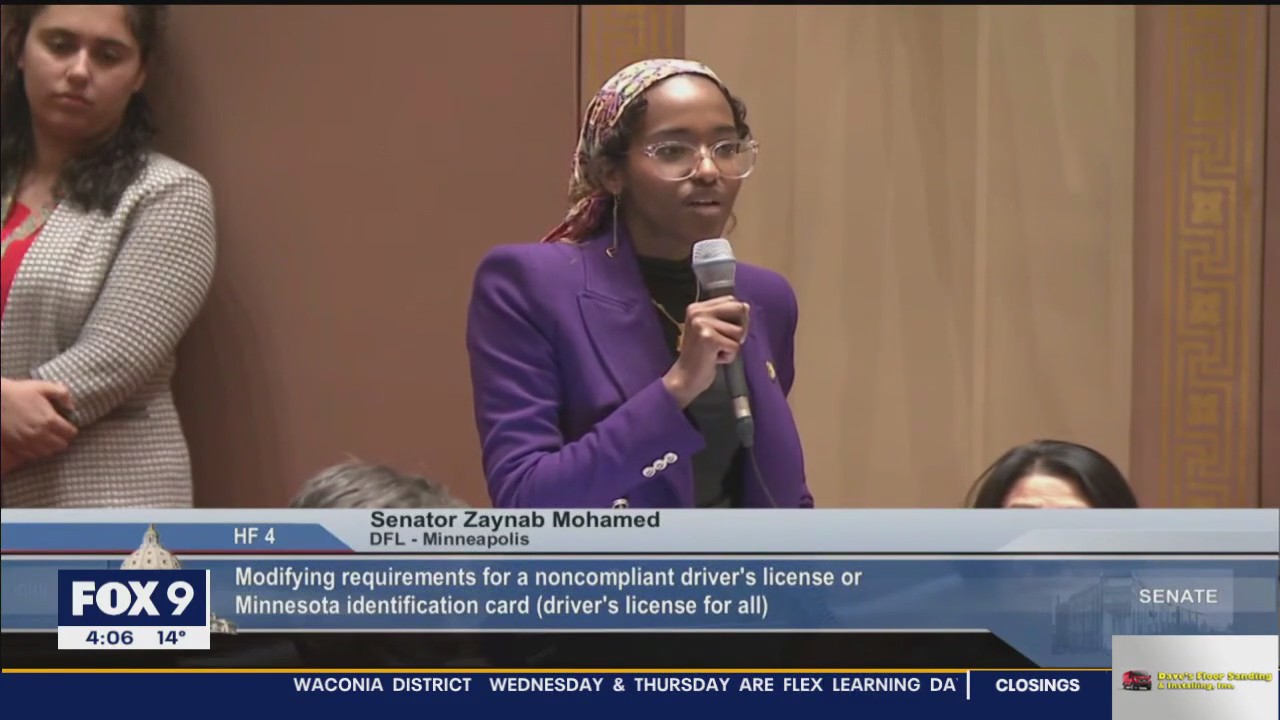People with felony convictions can now vote in Minnesota; secretary of state celebrates

Minnesota Senate passes driver's licenses for all, bill to restore felon voting rights
Before taking a break for the winter storm, the Minnesota Senate passed two bills: one that would give driver's licenses to illegal immigrants and another that would restore voting rights to felons. Gov. Tim Walz is expected to sign both bills.
ST. PAUL, Minn. (AP) - At a celebration of Minnesota’s new law that restores voting rights to people who have left prison, Democratic Secretary of State Steve Simon registered newly eligible voters Thursday, when the law went into effect.
"It is the largest single act of enfranchisement in over 50 years" for the state, Simon said at Arlington Hills Community Center in St. Paul, where dozens of people wearing purple T-shirts that said "Restore the Vote" clapped and cheered.
The new law allows people with felony convictions to vote as long as they are not currently incarcerated. It expands voting rights to at least 55,000 people in Minnesota, said Simon, the state’s chief election official.
Antonio Williams, a formerly incarcerated person and nonprofit director, spoke at the ceremony before registering himself to vote.
"After spending years registering other people to vote, I will now be able to register myself!" Williams said to a round of spirited applause.
In an interview with The Associated Press, Williams said he spent 14 years in prison for second-degree murder. Since leaving prison in 2020, he has worked as a canvasser on several political campaigns. He also started a nonprofit called Tone Up to help other formerly incarcerated people find housing, jobs and healing
Democratic Rep. Cedric Frazier, of New Hope, championed the legislation in the House and spoke at the celebration. He said Democratic lawmakers decided early in the session that passing this law would be a top priority.
"Because what we know is, strong and enduring democracies — they allow for the voices of the people to be heard," Frazier said.
Democrats took full control of state government when the Legislature convened for its 2023 session, marking the first time in eight years they have held the Senate, the House and the governor’s office. With that power, they passed a long list of legislative priorities that the previous Senate Republican majority had blocked.
Supporters of the new law have said it restores rights to people whom the courts have found safe to release and those people are already working, raising families and paying taxes in the community. Opponents have said the new law is not tough enough on people who have committed crimes.
Twenty-two other states restore voting rights when people with felony convictions leave prison, according to the National Conference of State Legislatures. That includes Republican-controlled North Dakota, Indiana and Utah.
In some places — including Maine, Vermont and the District of Columbia — people with felony convictions can vote while they’re still in prison.
Restoring the voting rights of former felons drew national attention after Florida lawmakers weakened a voter-approved constitutional amendment and after a new election police unit championed by Republican Gov. Ron DeSantis arrested 20 former felons. Several of them said they were confused by the arrests because they had been allowed to register to vote.
Attempts like those to discourage ex-felons from voting appear to be an outlier among the states, even as some Republican-led states continue to restrict voting access in other ways.

